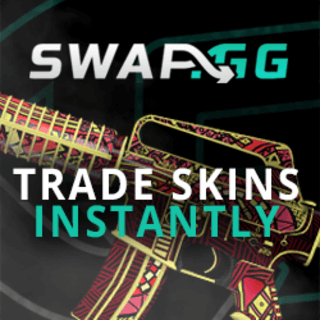Do Authorities Consider Video Game Loot Boxes as Gambling?
Are loot boxes in video games a harmless way to enhance your gameplay, or a potentially addictive form of gambling?
Loot boxes are virtual items that contain unpredictable rewards of varying value. You can purchase them with real money in video games. These purchases can be made with in-game currencies earned through gameplay or obtained through monetary transactions. Loot boxes involve monetary investment for an uncertain outcome.
Certain video games utilize nudging tactics to encourage players to make in-game purchases. These tactics include offering time-limited special items or deals that create a sense of urgency.
Many authorities worldwide, including the UK Gambling Commission, have determined that loot boxes share specific characteristics with gambling. These characteristics include the element of chance, the possibility of winning or losing something valuable, and the potential for addiction.
As a result, some countries have taken regulatory actions to limit or ban the use of loot boxes in games. To be clear, none of the best rated online casinos are affected by these measures. Casinos are clear about their games—they’re based on pure chance.
It’s video game publishers that often give out loot boxes without revealing the winning odds. Against that backdrop, below are some of the countries taking measures to regulate loot boxes.
Spain
In July 2022, Spain published a draft Bill making it the first country in the European Union to regulate loot boxes. The draft Bill recognizes the need for a dedicated regulatory framework for loot boxes. This is because of their unique characteristics and the growing concerns over their psychological and structural similarities to gambling.
The proposed legislation emphasizes the need to protect vulnerable individuals from the potential risks associated with loot boxes. One of the key provisions of the draft Bill is the prohibition of access to loot boxes by individuals under the age of 18. This is consistent with existing laws that prohibit minors from engaging in gambling activities.
The draft Bill also imposes certain obligations on publishers that offer loot boxes in their games. These obligations include implementing self-exclusion mechanisms and spending limits for loot boxes. These measures are designed to empower consumers and enable them to make informed decisions about using loot boxes.
If enacted, the Spanish legislation would be a significant step towards regulating loot boxes in Europe and could serve as a model for other countries. The draft Bill must undergo further revisions and consultations before being finalized and enacted into law.
Belgium
In 2018, Belgian authorities took a bold step by declaring loot boxes illegal, becoming the first European country to do so. They concluded that rewards obtained from gambling activities do not necessarily have to be of monetary value.
The elements of chance and risk involved in loot boxes are similar to those in traditional forms of gambling. Consequently, the Belgian government requested video game publishers to remove loot boxes from their games available in Belgium.
Despite this ban, the enforcement of the loot box ban in Belgium may not be as effective as intended. Studies show that loot boxes are still available in some video games in Belgium. It indicates that the implementation and enforcement of the ban have not been entirely successful. And some video game publishers may be finding ways to circumvent the ban by using alternative mechanisms to offer similar rewards.
The continued availability of loot boxes in Belgium raises concerns about the effectiveness of the regulatory approach taken by authorities in addressing the potential risks associated with loot boxes. It underscores the need for regulatory frameworks to protect vulnerable individuals from gambling-like activities in video games.
Norway
The Norwegian Consumer Council released a report in early 2022 advocating for regulating loot boxes in video games. The report highlighted the similarities between loot boxes and gambling and their potential risks. It called for measures to protect consumers from the potential harms of loot boxes, such as addiction and financial exploitation.
The report was endorsed by 20 different organizations from 18 European countries. These organizations launched a coordinated campaign to urge authorities in their respective jurisdictions to take action to regulate loot boxes. The campaign aimed to raise awareness about the issue and encourage policymakers to address the potential risks associated with loot boxes proactively.
The organizations involved in the campaign called for a range of measures to be taken. These measures include age restrictions on access to loot boxes, mandatory disclosure of the odds of winning specific items, and the implementation of spending limits. They argued that such measures would help protect vulnerable players and ensure consumers can make informed decisions about their use.
The campaign highlights the growing concern among consumer groups and policymakers about the potential risks associated with loot boxes and the need for regulatory frameworks to address these risks. It also illustrates the importance of international cooperation in addressing the issue, given the global nature of the video game industry and the widespread availability of loot boxes in many countries.
United Kingdom
The UK government prioritized industry-led protections for loot boxes instead of imposing legislative restrictions. A comprehensive review informed the government's decision on the evidence of loot boxes and their potential risks.
The government's review found a "stable and consistent" association between loot boxes and problem gambling. But it could not establish a clear causative link between the two. Nevertheless, the government-expressed concern about the risks associated with loot boxes and acknowledged the need for action to address these risks.
The government called on the video game industry to take a more proactive approach to protecting consumers from the potential harms of loot boxes. It urged the industry to adopt age restrictions, spending limits, and transparent disclosure of the odds of winning specific items. The government also called for the industry to work with regulators to monitor and evaluate these measures' effectiveness and take further action if necessary.
The British authorities’ decision to prioritize industry-led protections rather than legislative restrictions has been met with mixed reactions. Some critics argue that industry-led protections may not address the potential risks associated with loot boxes. Others argue that legislative restrictions may be overly restrictive and could stifle innovation in the video game industry.
The debate around loot boxes and their potential risks highlights the need for ongoing research and discussion. It also shows the importance of collaboration between industry, government, and consumer groups to develop effective regulatory frameworks. These frameworks must protect consumers while supporting innovation and growth in the video game industry.













